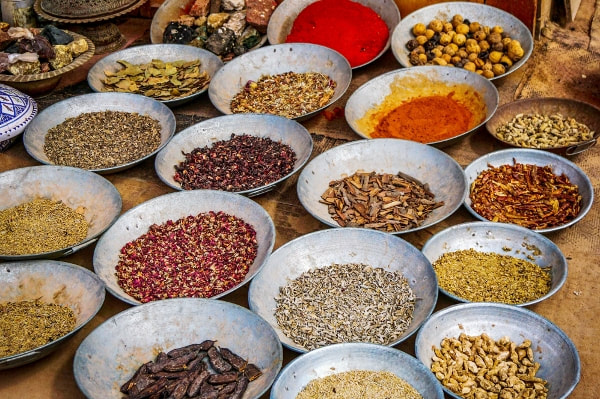|
This is not so much about the regular workings of your kitchen – that is a subject for another day – but the fact that kitchens tend to have more than one function: quite apart from being the place where food is prepared and consumed, it is also where you would store your kitchen implements (including some level of machinery from a kettle to that fancy semi-automatic pasta maker) and all the foodstuffs you use to actually eat in the fullness of time. Among those foodstuffs we would count a good number of condiments, spices, things like baking powder, flour, herbs, etc. All those things tend to be dried or powdery and that gives us the idea that they keep for quite a long time. To some degree that is true, but what is also a fact is this: powdery stuff and dried materials tend to diminish in potency very quickly AND they tend to be hygroscopic, meaning that they attract moisture from the surrounding air, which makes them an easy target for all manner of fungus and moulds. Let’s look at function first: you’d be surprised how short the life span of some spices can be. It’s important to separate ‘going bad’ from ‘not being much good’, especially for dried herbs. Yes, we are talking about years rather than months, but be aware that spices and herbs lose their potency gradually, without really going ‘bad’. Much depends on the correct storage and this is where things often go wrong. Here are some tips: Airtight containers. Those are important for several reasons: keeping the air away will slow down the oxidation process and keep your products fresher. It also prevents moths and other insects from invading and becoming an issue over time. In general it may be a good idea to decant herbs and spices from plastic bags into proper closable containers at any time. Keep it dry. One of the main reasons for degradation is moisture: any water in the surrounding air will be instantly sucked into the powder or dried materials, taking away a bit of taste every time. This also means to season your foods indirectly: don’t just use your package to pour it into your steaming soup, but pour it into a spoon and then use it. Temperature. Keep your herbs and spices cool to avoid breakdown of the plant materials. That said, keeping spices in the fridge or freezer is a bad idea as well as each time you open the container the temperature differential will lead to condensation on the container, leading to much more humidity getting in than you may think. Some sources mention not to be ‘afraid’ to use spices that have lost their punch, but personally I’d stick with the basic trick: crunch some of it between two fingers and smell it. If you get a feeling of oiliness it’s a good sign. If you smell a reasonable amount of spice at that point it’s a good sign. You may up the volume of spice you add to your dishes to use up these herbs and spices, but personally I would advise to buy smaller volumes and replace spices if they feel ‘past their time’. Usually the ‘best by’ dates are a good indicator, but by no means are they clear cut off dates. Use your own best judgment and if a package looks crummy or the smell is somewhat suspicious I’d personally err on the side of buying new products… If you have enjoyed reading this, you may find these other articles interesting: Comments are closed.
|
Ask the ClutterMeisterIdeas to help clear away the mess in your homes and in your minds.
Feel free to share any of my posts, but please put in a backlink to the original blog post. Thank you. The author
Hi, my name is Tilo Flache. My mission: help clients declutter mind and space.
This blog contains pointers for your journey towards a happier living experience. Archives
November 2023
|



 RSS Feed
RSS Feed




